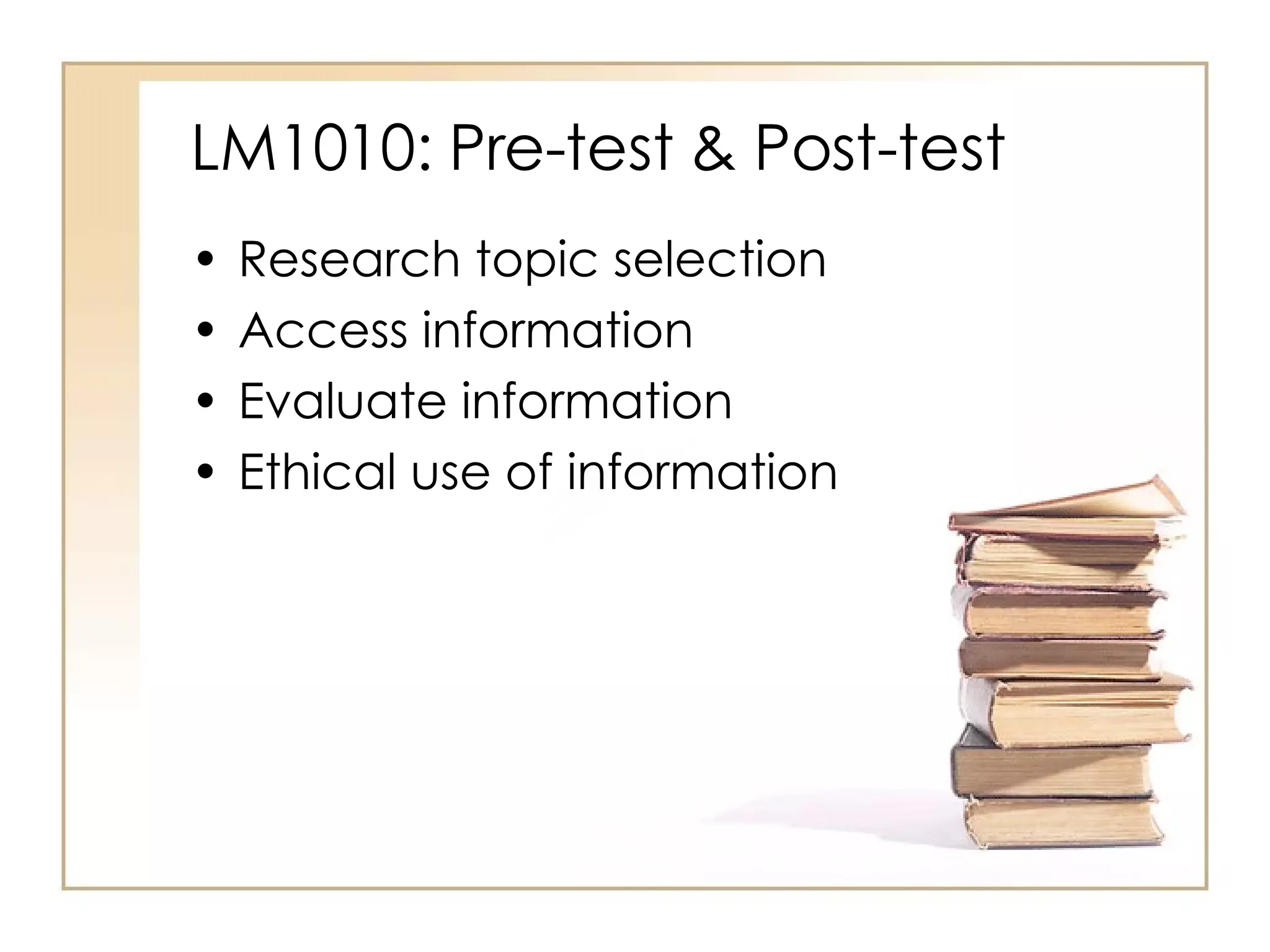The document discusses the major transitions high school students face when beginning college, including greater independence, stronger academic competition, less structured schedules, and having to motivate themselves. It provides tips for supporting students, such as fostering effective study skills, teaching information literacy skills, and helping students take responsibility for their own education. The document also outlines common research problems of freshman students and what library instruction programs aim to teach them.


















































